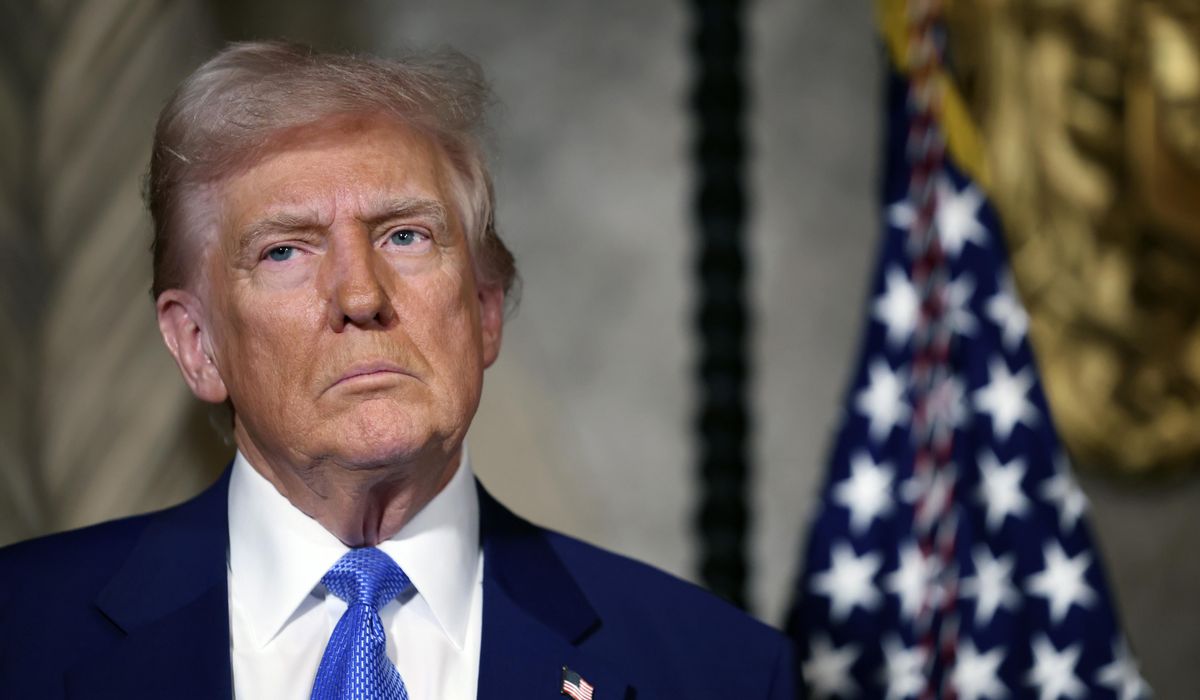


The White House is moving to gain control of independent agencies, like the Federal Trade Commission, Securities and Exchange Commission and Federal Communications Commission, prompting critics to question its legality.
The executive order President Trump signed Tuesday from Mar-a-Lago ensures “all federal agencies are accountable to the American people.”
It calls for independent agencies to submit draft regulations to be reviewed by the White House and consult with the White House on their plans. It also calls for the Office of Management and Budget — currently headed by Russell Vought — to review the agencies’ spending.
“These regulatory agencies currently exercise substantial executive authority without sufficient accountability to the President, and through him, to the American people,” the order says. “Moreover, these regulatory agencies have been permitted to promulgate significant regulations without review by the President.”
The fact sheet said the order fulfills Mr. Trump’s “promise to restore constitutional governance and accountability to the entire executive branch.”
The order says it’s not applicable to the Board of Governors of the Federal Reserve System or to the Federal Open Market Committee “in its conduct of monetary policy.”
Doug Holtz-Eakin, president of the American Action Forum, a center-right think tank that focuses on economic policy, said that the decision was made because the economy was “such a hot-button issue” during the election, and so the president can blame someone else if inflation rates don’t come down.
“He’s insulated from it, and that’s the advantage of having an independent agency,” Mr. Holtz-Eakin said.
This order is just one move Mr. Trump has made to give more power to the executive branch to make sure his agenda is fulfilled.
Typically, heads of federal agencies are presidential appointees, but most of them include bipartisan membership as well. They make decisions and write and enforce regulations. Congress established the agencies to have a certain level of independence to interpret laws.
“This action will serve only to politicize and corrupt independent agencies, which will now be subject to the political whims of those in power,” said Alexandra Reeve Givens, CEO of the nonprofit Center for Democracy & Technology. “For a century, these agencies have been independent for a reason — Congress needs these experts to interpret the laws it passes, and to initiate investigations and enforce those laws without political favoritism.”
Mr. Holtz-Eakin said that stance is a “little too strong.”
“You’re already appointing the heads of them and getting them confirmed by the Senate, so you’ve got your fingerprints on everything the agency is up to already,” he said of the president. “And that’s political in the best sense of the word. We want the elected president to reflect the wishes of the voters who elected him, and that’s one of the ways you do it.”
Walter Olson, a senior fellow at the Cato Institute’s Robert A. Levy Center for Constitutional Studies wrote in a post for the institute that if the Trump administration gets this executive order past any legal cases it may be subjected to, “it’s momentous.”
Other critics, like Free Press Co-CEO Craig Aaron, called the order “an unconstitutional power grab” and “a blatant abuse of executive power and is a slap in the face to Congress and the electorate.”
• Mallory Wilson can be reached at mwilson@washingtontimes.com.
